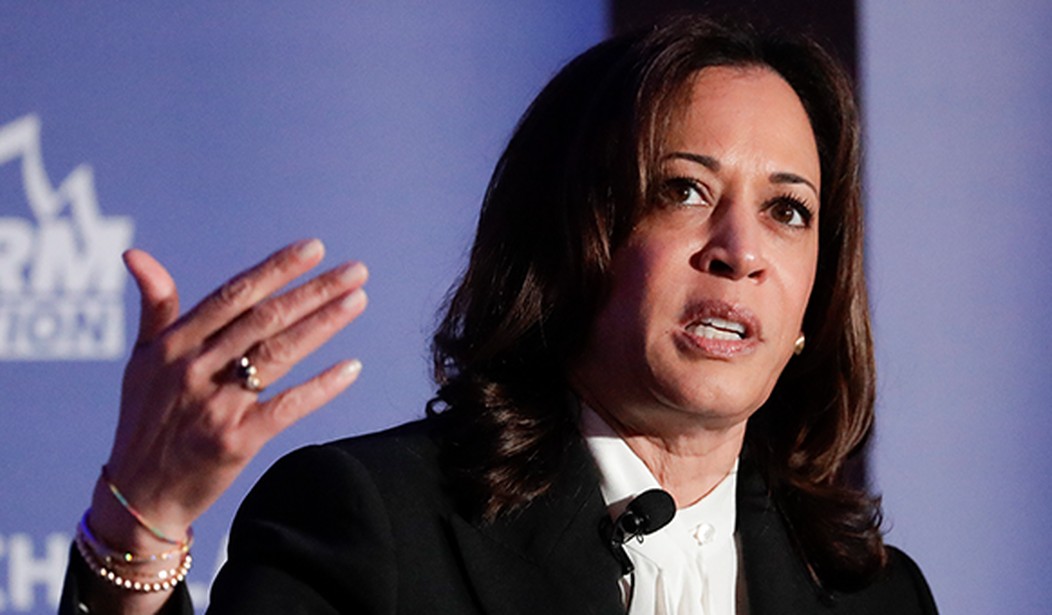We are all, to some extent, prisoners of the past. Things that have already happened -- or that we remember as having happened -- constitute the world that we know. Anything else is a product of imagination.
But it can also be a pitfall for politicians, particularly for those seeking national visibility when they're running for president. It's jarring to see candidates ignore recent changes and describe a world that no longer exists, as when they were asked leadoff questions about the economy in the first two Democratic debates.
Night one: "It's doing great for a thinner and thinner slice at the top"; "The economy has got to work for everyone, and right now we know it isn't"; "We know that not everyone is sharing in this prosperity"; "This economy is not working for average Americans"; "There's plenty of money in this country. It's just in the wrong hands." So spoke Elizabeth Warren, Beto O'Rourke, Amy Klobuchar, Cory Booker and Bill de Blasio, respectively.
Night two: "(T)he bottom 60 percent haven't seen a raise since 1980"; "We have three people in this country owning more wealth than the bottom half of America"; "We do have enormous income inequality"; "This economy is not working for working people"; "Forty years of no economic growth for 90 percent of the American people." Those were Tim Ryan, Bernie Sanders, Joe Biden, Kamala Harris and Michael Bennet, respectively.
Recommended
These are reasonably accurate descriptions of the macroeconomy in the years after the financial crash and recession of 2008, during the Obama presidency, and plausible descriptions of the eight years of George W. Bush's presidency.
Even in the buoyantly prosperous years of the 1980s and 1990s, incomes rose faster among the affluent and well-educated, while blue-collar wages tended to flatline. Economic inequality tended to increase according to various measures. Those trends continued in the 2000s and 2010s and were decried by Democratic politicians and Donald Trump.
Now there are signs that those trends are reversed. In percentage terms, wage gains seem to be increasing most for those at the bottom of the wage scale. Blue-collar incomes are apparently rising more rapidly than white-collar. Unemployment has dropped to levels not seen for 50 years, and unemployment among blacks and Hispanics seems to have dropped to the lowest levels since measurement began.
It's possible that these trends will turn out to be just momentary reversals of dominant long-term trends. It's also possible that these trends were not caused by any policies or actions of the Trump administration, and maybe even possible that, as some Democrats argue, the trends are a delayed result of Obama administration policies.
But the fact remains that candidate Trump promised an economy whose gains would go more to those less well off than they have in the recent past, to blue-collar workers in particular, and to blacks and Hispanics. And that's how the economy has performed in the 30 months he has been in office. Looks like he delivered.
Of course, Democrats don't want to admit that, and so, they fall back on congenial rhetorical tropes even after the tropes have gone stale. And maybe their outdated analyses didn't strike their debate audiences as dissonant with reality.
We Americans are fractured into political tribes these days, and it was mostly the Democratic tribe that tuned into MSNBC for the Democrats' debate. Polling shows that voters' assessment of economic trends is more highly correlated with partisan loyalty than economic performance.
But it won't be only Democrats watching once the party has a nominee and once general election campaigning starts. And that nominee may want to avoid the unpopular stands that most of today's two dozen candidates have endorsed -- ninth-month abortions, free college, open borders through decriminalization of illegal border crossing, free medical care for illegal immigrants, abolition of private health insurance.
Democrats remember the 1992 Bill Clinton mantra "It's the economy, stupid," and how Clinton won despite a macroeconomic upswing. So why not describe the economy as it used to be and as they'd like voters to see it, rather than as it actually is?
This has another benefit for Democratic partisans, who are increasingly upscale white college graduates who care most about cultural issues but who'd like to think their policies help the less fortunate.
Their party has already lost the blue-collar whites who were once its base, and erosion of its supermajorities from blue-collar blacks and majorities from blue-collar Hispanics could destroy its dreams of long-term majorities. So tell them they're suffering, even if they're not anymore. Hope they're prisoners of the past.
Michael Barone is a senior political analyst for the Washington Examiner, resident fellow at the American Enterprise Institute and longtime co-author of The Almanac of American Politics.

























Join the conversation as a VIP Member